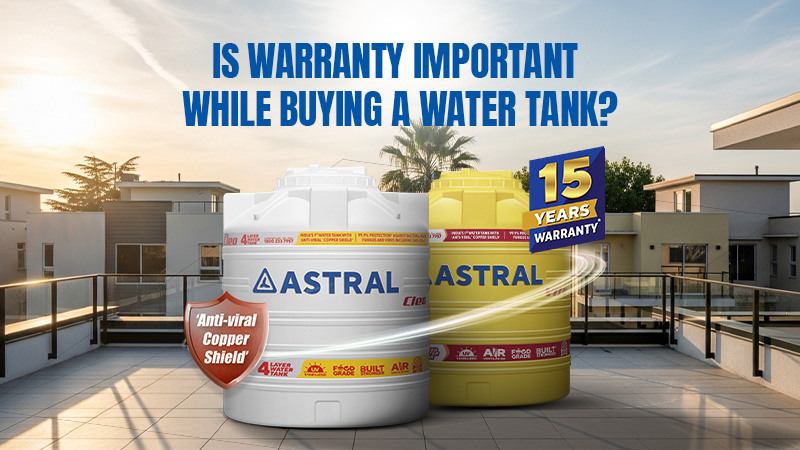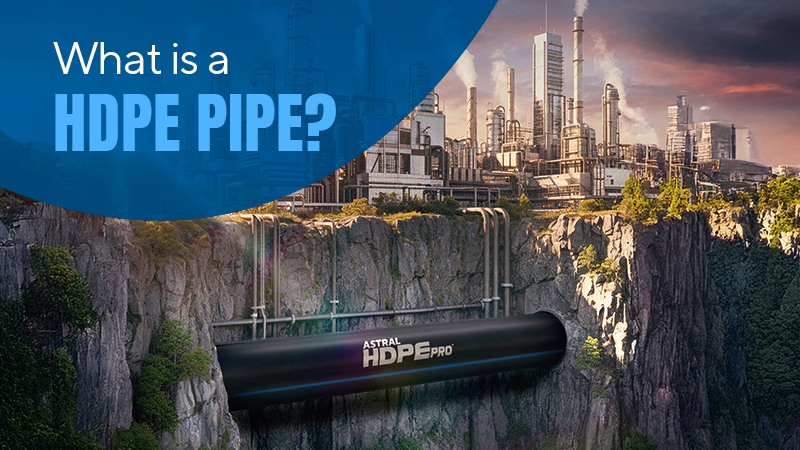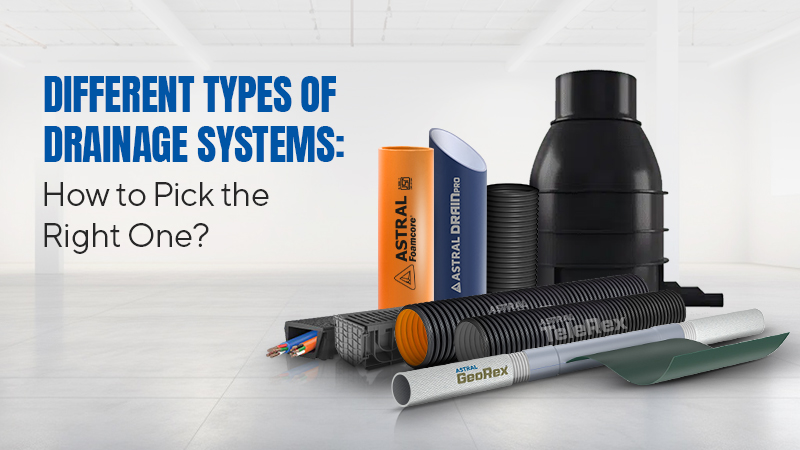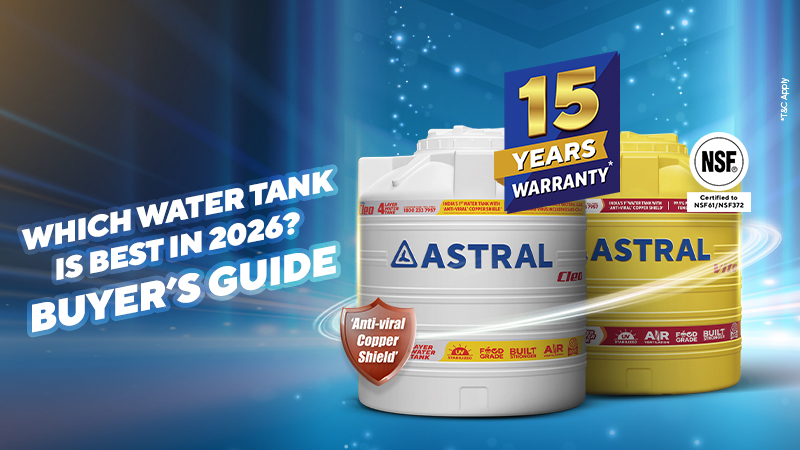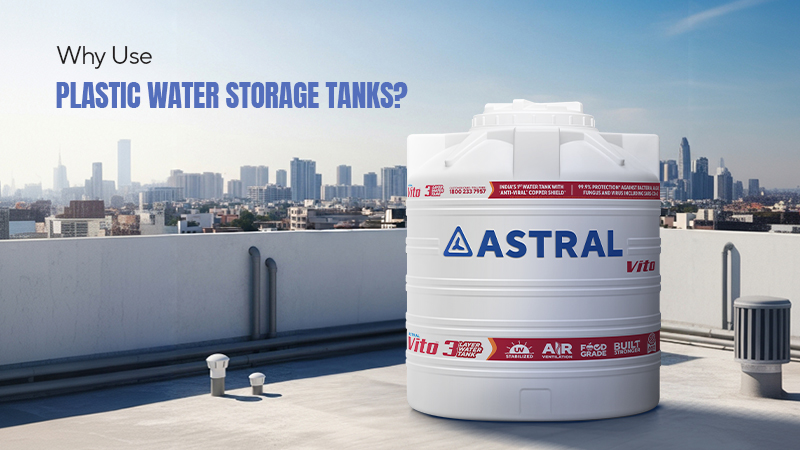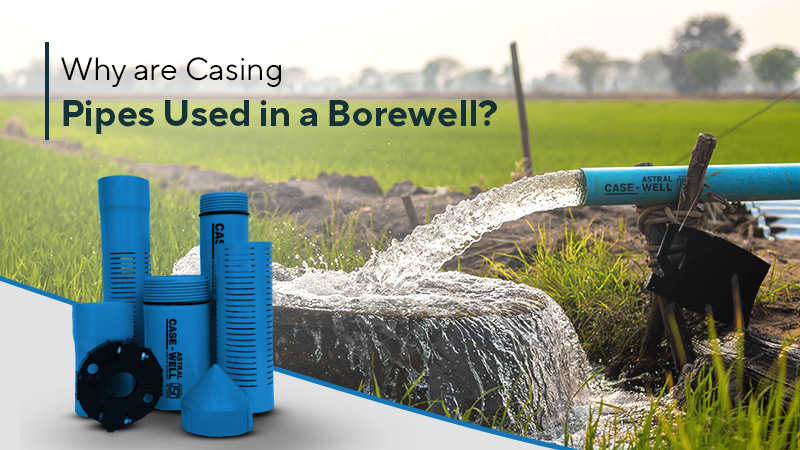
15 Jul 2025
Why are Casing Pipes Used in a Borewell?
Accessing groundwater through borewells is vital for people living in areas with limited water supply from reservoirs. For any borewell to function effectively and last long, two important components must work together: casing pipes and column pipes. While these components serve different purposes, both types of borewell pipes are essential for the system.
Casing pipes line the walls of your borewell, acting as a protective shield that stops loose soil from falling in and keeps the water clean. Column pipes, on the other hand, connect your submersible pump to the surface, carrying water upward for use. Without quality casing pipes, column pipes can fail as the borewell could collapse or become contaminated. In this blog, let us understand what is borewell system is and the importance of casing pipes in it.
What is a Borewell?
A borewell is a deep, narrow well drilled into the ground to access water stored in underground aquifers. Using advanced drilling techniques, borewells can reach depths of up to several hundred metres, tapping into water sources far below the surface. These systems are widely used in areas with limited surface water, offering a sustainable solution for water scarcity.
To function effectively, a complete borewell system relies on two distinct yet complementary systems, each comprised of one of the following types of pipes.
- Casing Pipes: These pipes line the borewell walls, preventing collapse and contamination. They are installed during the drilling process and remain permanently in place.
- Column Pipes: Also known as riser pipes, these connect the submersible pump at the bottom of the borewell to the surface. Water travels through these pipes from the aquifer to where it is needed.
Borewells help provide water for many important uses:
- Agricultural irrigation: For fields and crops
- Domestic & commercial use: For drinking water and sanitation
Given the demanding conditions borewells operate under, both casing and column pipes must be of high quality to ensure protection against contamination and efficient water delivery. Let us further understand in detail the role of casing pipes for borewell systems.
What is Casing in Borewell?
Casing in a borewell means placing a pipe inside the drilled hole to support its structure. These pipes are usually made of uPVC or PVC and play an important role in keeping the borewell strong and working well.
Casing pipes mainly do the following things:
1. Preventing Collapses: These types of borewell pipes stabilise the borewell walls in loose soil or rocky conditions.
2. Sealing Contaminants: They act as a barrier to block debris, surface runoff and other external pollutants from entering the water source.
3. Facilitating Pump Installation: Casings create a smooth passage for installing and operating submersible pumps efficiently.
By ensuring the structural and functional integrity of a borewell, casing pipes provide a foundation for sustainable and long-term water extraction.
Benefits of Using Casing Pipes in Borewell
Casing pipes are an architectural backbone for borewells, offering various functional and operational advantages. Here are the benefits of using casing pipes for a borewell:
1. Ensures Structural Stability
Casing pipes provide robust structural support to borehole walls, particularly in regions with loose or unstable soil conditions. This ensures the borewell maintains its shape and continues functioning optimally without risk of collapse.
2. Prevents Contamination
From surface runoff to industrial pollutants and harmful bacteria, groundwater is under constant threat of contamination. Casing pipes creates a secure seal around column pipes that prevents any intrusion from external elements, ensuring the water remains clean and safe for consumption or use.
3. Enhances Durability
High-quality casing pipes made from durable materials such as uPVC are resistant to corrosion and chemical reactions. This results in a longer service life and reduced maintenance needs over time.
4. Improves Pump Efficiency
Properly cased borewell pipes provide a clear, stable channel that allows submersible pumps to operate smoothly. Reduced friction and better alignment lead to higher efficiency and lower energy consumption.
5. Simplifies Maintenance
Casing pipes simplify borewell maintenance by allowing easy access for cleaning, inspection and repairs. They also facilitate monitoring water levels and managing extraction processes effectively.
6. Resistant to Corrosion and Chemicals
Particularly in chemically active soils or saline water environments, these borewell pipes safeguard the structure against corrosion. uPVC pipes, in particular, offer superior chemical resistance, which makes them highly suitable for harsh conditions.
7. Cost-Effective in the Long Run
Lightweight and easy to install, casing pipes reduce both material and labour costs. Their long lifespan adds to significant cost savings in the long run.
Choosing the right borewell pipes becomes essential to achieve these benefits. Considering material, strength and quality standards is important for ensuring reliable performance in challenging borewell environments.
Why Choose Astral’s Casing Pipes for Borewell?
At Astral Pipes, uPVC column and casing pipes are designed specifically for borewells and submersible pump applications. Our commitment to the highest standards of water safety and purity shows up as products with zero lead and zero heavy metals.
Our Astral Case-well column pipes efficiently transport water from submersible pumps to the surface, while our Case-well pipes provide exceptional structural integrity to borewell walls and prevent contamination. We subject both pipe products rigorously to test them for pressure resistance, durability and chemical stability. Our column pipes feature innovative designs like double stainless steel stud pin locking systems and EPDM ‘O’ rings for vibration-absorbing, leak-proof joints.
By eliminating lead and heavy metals from our pipes, we prevent harmful substances from leaching into drinking water and irrigation systems. This makes our borewell pipes environmentally responsible while meeting strict international standards for potable water applications.
Read our blog on How to Select Submersible Pump for Borewell?


